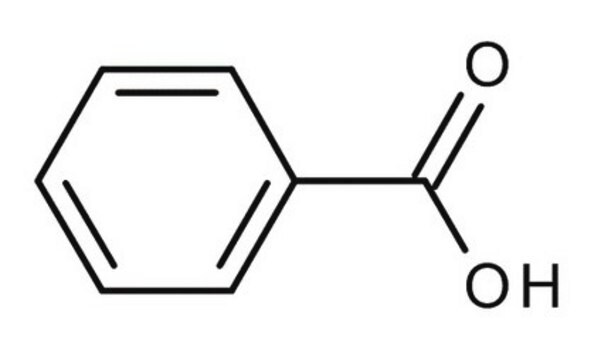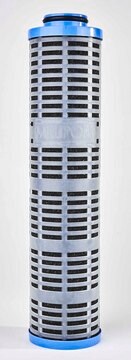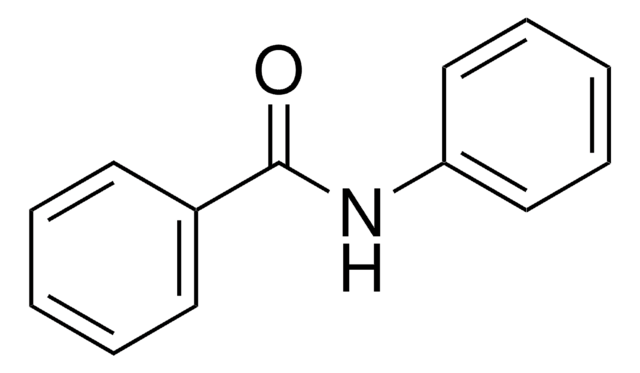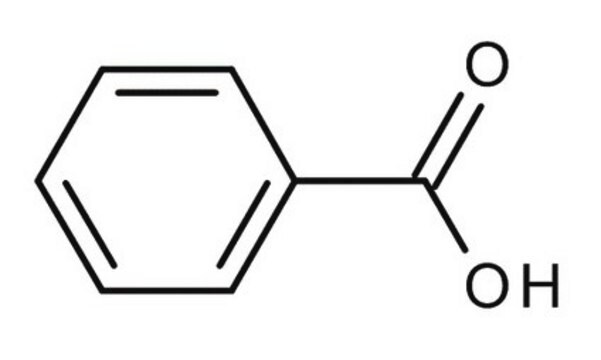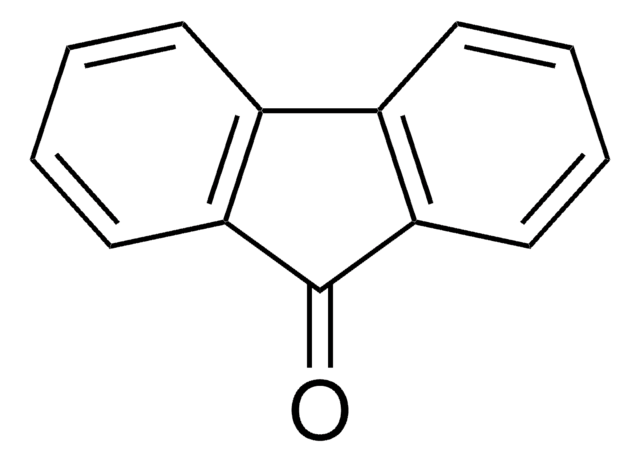W213101
Acide benzoique
≥99.5%, FCC, FG
Synonyme(s) :
Benzene carboxylic acid, Benzene formic acid, Diacylic acid, Phenylcarboxylic acid
About This Item
Produits recommandés
Source biologique
synthetic
Niveau de qualité
Qualité
FG
Halal
Kosher
Agence
meets purity specifications of JECFA
Conformité réglementaire
EU Regulation 1334/2008 & 178/2002
FCC
FDA 21 CFR 117
FDA 21 CFR 184.1021
Densité de vapeur
4.21 (vs air)
Pression de vapeur
10 mmHg ( 132 °C)
Pureté
≥99.5%
Forme
powder or crystals
Température d'inflammation spontanée
1061 °F
Conditionnement
poly drum of 10, 25 kg
poly bottle of 1 kg
Point d'ébullition
132-133 °C/10 mmHg
249 °C (lit.)
Pf
121-125 °C (lit.)
Solubilité
soluble, clear, colorless (95% ethanol, 1gm/3mL)
Densité
1.32 g/cm3 at 20 °C
Traces de cations
As: ≤3 ppm
Cd: ≤1 ppm
Hg: ≤1 ppm
Pb: ≤2 ppm
Application(s)
flavors and fragrances
Documentation
see Safety & Documentation for available documents
Allergène alimentaire
no known allergens
Propriétés organoleptiques
balsam
Chaîne SMILES
OC(=O)c1ccccc1
InChI
1S/C7H6O2/c8-7(9)6-4-2-1-3-5-6/h1-5H,(H,8,9)
Clé InChI
WPYMKLBDIGXBTP-UHFFFAOYSA-N
Vous recherchez des produits similaires ? Visite Guide de comparaison des produits
Description générale
Application
- Photochemical Aerobic Upcycling of Polystyrene Plastics.: Benzoic acid is utilized in a novel photocatalytic process for the upcycling of polystyrene plastics. This study showcases its application in sustainable chemistry, focusing on the efficient breakdown and recycling of polymer materials (Skolia et al., 2024).
Clause de non-responsabilité
Mention d'avertissement
Danger
Mentions de danger
Conseils de prudence
Classification des risques
Eye Dam. 1 - Skin Irrit. 2 - STOT RE 1 Inhalation
Organes cibles
Lungs
Code de la classe de stockage
6.1C - Combustible acute toxic Cat.3 / toxic compounds or compounds which causing chronic effects
Classe de danger pour l'eau (WGK)
WGK 1
Point d'éclair (°F)
Not applicable
Point d'éclair (°C)
Not applicable
Équipement de protection individuelle
dust mask type N95 (US), Eyeshields, Faceshields, Gloves
Faites votre choix parmi les versions les plus récentes :
Déjà en possession de ce produit ?
Retrouvez la documentation relative aux produits que vous avez récemment achetés dans la Bibliothèque de documents.
Les clients ont également consulté
Notre équipe de scientifiques dispose d'une expérience dans tous les secteurs de la recherche, notamment en sciences de la vie, science des matériaux, synthèse chimique, chromatographie, analyse et dans de nombreux autres domaines..
Contacter notre Service technique
